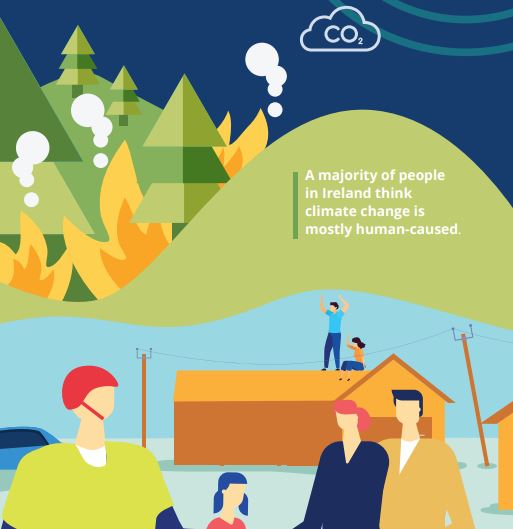
Date: 14 Dec 2021
New Report form the EPA on Irish attitudes to Climate Change
The ‘Climate Change in the Irish Mind’ project is being led by the EPA with Yale University’s Programme on Climate Change Communications (YPCCC) to research the attitudes, behaviours, policy preferences and beliefs of the Irish public to climate change.
The results of this research are now being made public with the release of the 'Climate Change in the Irish Mind' Report. It provides a range of fresh insights into the attitudes of the Irish population which will be of benefit to researchers, policymakers, government departments/ agencies, communications experts, and other interested parties
The approach to the project is based on the established methodology of the “Climate Change in the American Mind” survey conducted by the Yale Program on Climate Change Communication and the George Mason University Center for Climate Change Communication, which was altered to meet an Irish context. This is the first nationally-representative survey of its kind in Ireland.
The report was summarised and some key findings were gathered under following three categories include:
Climate change beliefs and attitudes of the Irish people
- 96% of Irish people think climate change is happening
- 85% are worried about climate change
Climate Policies
- 62% think taking action to reduce climate change will improve economic growth and create jobs
- 90% say Ireland has a responsibility to act on climate change and should do what it can to reduce its own greenhouse emissions.
Climate-related behaviours
- 69% of Irish people would donate money or volunteer time (60%) to an organization working on climate change.
- 57% have bought goods or services in the last 12 months from a company that has taken action to reduce climate change.
These findings will be used to inform and assist national communications on climate change. It will also be used by climate policy and decision makers, the research community, media and the non-governmental sector.